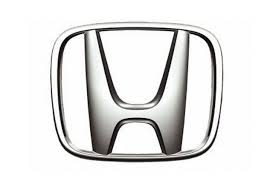Civic HX Coupe L4-1668cc 1.7L SOHC (VTEC-E) MFI (2001)
_mfi/Page-1690001.png)
Brake Drum: Testing and Inspection
Rear Drum Brake Inspection
CAUTION: Frequent inhalation of brake pad dust, regardless of material composition, could be hazardous to your health.
^
Avoid breathing dust particles
^
Never use an air hose or brush to clean brake assemblies. Use an OSHA-approved vacuum cleaner.
NOTE:
^
Contaminated brake linings or drums reduce stopping ability.
^
Block the front wheels before jacking up the rear of the vehicle.
1. Raise the rear of the vehicle, and support it with safety stands in the proper locations. Remove the rear wheels.
2. Release the parking brake, and remove the rear brake drum.
3. Check the wheel cylinder (A) for leakage.
4. Check the brake linings (B) for cracking, glazing, wear, and contamination.
5. Measure the brake lining thickness (C). Measurement does not include brake shoe thickness.
Brake Lining Thickness:
Standard: 4.0 mm (0.16 inch)
Service Limit: 2.0 mm (0.08 inch)
